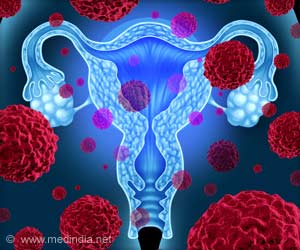Many researchers are trying to explore mechanisms that support cancer growth such as gene amplification, increased protein level, or upregulation of critical cellular pathway.
‘New important molecular mechanisms and biomarkers in ovarian cancer are discovered.’
These changes give cancer a selective advantage, at the same time they can become a weak area if the alteration is blocked that will kill the cancer or stop its growth.
This new study discovered that ovarian cancers massively amplify an enzyme, NMNAT-2, that makes NAD+. NAD+ is the substrate for a family of enzymes called PARPs, which chemically modify proteins with ADP-ribose from NAD+.
As it is difficult to identify single ADP-ribose group attached to a protein, they developed a synthetic detection reagent made up of natural protein domains fused together to detect ADP-ribosylated proteins in cells and patient samples.
“We were able to show that when ribosomes are mono(ADP-ribosyl)ated in ovarian cancer cells, the modification changes the way they translate mRNAs into proteins,” Dr. Kraus said.
This study identified mono (ADP-ribose) and NMNAT-2 as potential biomarkers for ovarian cancers, which allowed clinicians to identify ovarian cancer patients who may respond well to treatment.
This finding is not only a great advance in basic science but also a real promise for clinician investigators and cancer care practitioners because it shows a biomarker and a pathway for future drug target.
Source: Medindia



